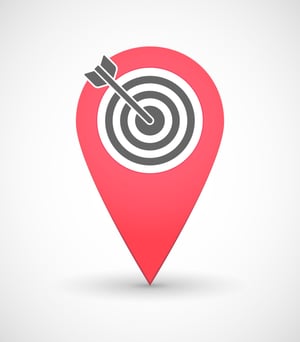There are many assets beyond just vehicles that companies need to closely monitor. Many assets, such as trailers, generators, and other heavy equipment, have a high value or contain parts/cargo that has a high value. This makes your assets a prime target for theft.
Beyond being high-risk theft targets, these assets can have a major impact on your business’ daily operations. Being able to put trailers, generators, and other heavy equipment to efficient use is critical for ensuring productivity.
But, how can you ensure that your heavy equipment is being put to efficient use?
One way is to use GPS asset tracking systems for your trailers, generators, and more.
How Does GPS Tracking Help You Manage Assets?
 You’re probably already familiar with the use of GPS tracking for vehicles. The concept is similar here: attach a small GPS tracking device to your asset and use it to monitor the asset’s position and key usage statistics.
You’re probably already familiar with the use of GPS tracking for vehicles. The concept is similar here: attach a small GPS tracking device to your asset and use it to monitor the asset’s position and key usage statistics.
Why load a GPS tracker onto largely immobile assets such as generators? There are a number of reasons.
First, for the antitheft protection. If thieves attempt to steal a generator or other asset whole, you’ll be able to track the asset’s position. This helps ensure faster recovery of stolen assets so they can be put back into use sooner rather than later.
Second, to enable remote performance monitoring. GPS devices can do more than just report map locations these days. Many GPS tracking devices can tie into an asset’s systems to provide reports on trailer temperature, activation/deactivation times for generators, and door open/closings for multiple large asset types.
Remote performance monitoring helps you improve maintenance scheduling based on asset use, check if an asset is being over/underutilized, and archive data for future reference. This allows you to keep assets in top shape. Also, if the asset consumes fuel, such as a generator or piece of construction equipment might, you can compare the use logs to the reported fuel usage to check for discrepancies.
A third benefit is that using GPS tracking helps you track down the exact location of an asset in your own pooling yard quickly and easily. This can minimize confusion when trying to hunt down a specific trailer or generator for maintenance or shipment offsite. With GPS locations for your most important assets, there’s less time wasted trying to hunt these assets down and more time spent on maximizing productivity.
Finally, using GPS tracking for high-value assets can help you reduce costs for insuring said assets. The strong antitheft protection offered by GPS can qualify for discounts with certain insurance providers. However, the availability and size of this discount will vary from one insurance provider to the next.
Making the Most of GPS Asset Tracking
 To get the biggest benefit from your GPS tracking devices on your assets, it’s important to carefully consider what type of GPS devices you’re going to use for which assets.
To get the biggest benefit from your GPS tracking devices on your assets, it’s important to carefully consider what type of GPS devices you’re going to use for which assets.
For example, many large, high-value assets have their own power supply that a GPS unit can be plugged into—others might not. To track unpowered assets, you’ll need to use a battery-powered tracking device, and ensure that the device’s batteries are recharged/replaced as necessary.
It’s also important to consider how frequently a GPS tracking device should make reporting updates. Report frequency affects data usage, battery life, and accuracy of the “current” location data for tracked assets.
Generally speaking, frequent reports are best for ensuring accurate current location information, strong antitheft, and more granular control over assets in use. Lower report frequency helps minimize power consumption and server load, helping to minimize costs.
Finally, you should carefully consider who you partner with for GPS tracking solutions. Your choice of vendors can make a huge difference for how much support you’ll get once you start using GPS asset tracking, as well as the overall quality of the software and tracking devices.
Ideally, any provider you partner with should give you:
- Access to the latest upgrades to ensure compatibility with the newest computer hardware and software systems.
- Training, service, and support to help you integrate your new GPS units with your daily operations.
With the right GPS tracking partner, improving your control over your assets in the field is easy.
Like what you're reading? Subscribe to our blog.
Get our latest posts straight to your inbox.
Subscribe to Our Blog





